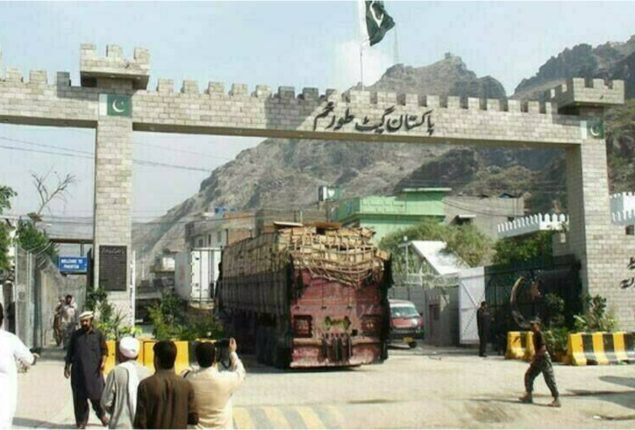Pakistan slams Israeli ferocious strikes in Gaza
UNITED NATIONS: Decrying overnight Israel’s ferocious strikes in Gaza that left 400...

Pakistan, Afghanistan agree on ceasefire, reopen Torkham border after 25 days
The Torkham border crossing, a key route for travel and trade between Pakistan and landlocked Afghanistan, has reopened after 25 days following successful negotiations between authorities from both countries.
Sources told that authorities will first reopen the crossing for trade, while pedestrian crossings will resume on Friday.
After the border crossing reopened, bilateral trade resumed as trucks carrying commercial goods began entering Afghanistan, sources added.
Earlier, Syed Jawad Hussain Kazmi, head of the Pakistani tribal jirga, said that Afghan officials had agreed to remove the controversial construction that caused tensions between the two sides.
He stated that the ceasefire would remain in place until the Joint Coordination Committee (JCC) meeting occurs, ensuring stability in the region. Kazmi added that Afghan authorities’ decision has satisfied Pakistani security officials.
Tensions over the construction of a bunker by Afghan forces near Zero-Point triggered the closure, severely impacting cross-border movement and suspending all trade and travel between the two countries.
The crossing remained closed since February 21 after clashes erupted. According to “The News”, security sources reported that Afghan forces attempted to build a bunker in a disputed area near the border, prompting a response from Pakistan’s Frontier Corps (FC).
Since the closure, truckloads of supplies have clogged the crossing, mainly destined for Afghanistan, which faces a humanitarian and hunger crisis and heavily relies on food imports from Pakistan.
Pakistan’s foreign office reported that trade between the two countries exceeded $1.6 billion in 2024.
Customs officials report that the Torkham crossing handles daily trade worth approximately $3 million and facilitates the movement of around 10,000 people. The reopening is expected to revive economic activity and ease travel for traders and citizens who depend on this crucial border route.
The porous 2,500-kilometer border between the two nations features several crossing points, which serve as key hubs for regional trade and connections between people on both sides.
However, terrorism remains a major concern for Pakistan, which has repeatedly urged Afghanistan to stop groups like Tehreek-e-Taliban Pakistan (TTP) from using its soil to launch attacks inside Pakistani territory.
A report submitted to the United Nations Security Council (UNSC) by the Analytical Support and Sanctions Monitoring Team has confirmed Islamabad’s reservations, revealing a nexus between Kabul and the TTP, with Kabul providing logistical, operational, and financial support to the group.
Catch all the Pakistan News, Breaking News Event and Latest News Updates on The BOL News
Download The BOL News App to get the Daily News Update & Follow us on Google News.